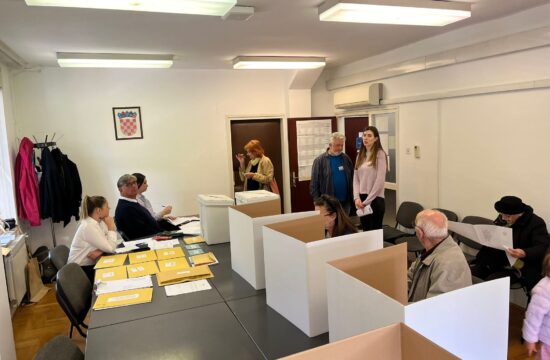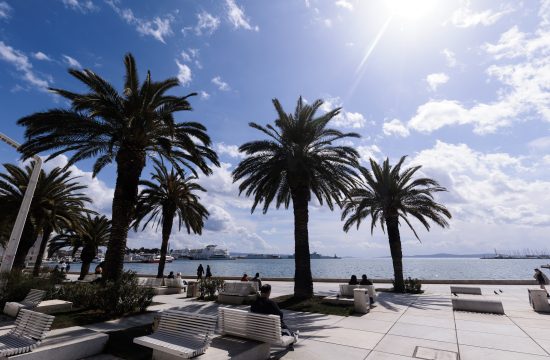N1 television's reporter, Hrvoje Kresic, talked to The Washington Post's executive editor, Martin Baron, about media freedoms in the world today and the challenges that the media face in the United States during the Trump presidency.
The media is facing a number of challenges today globally, even in developed democracies such as the United States. Does this help totalitarian regimes throughout the world in controlling their own media?
“What’s happened is… because of the President’s own attacks on the press in the United States – where we traditionally have had a free press, and still have a free press – it has sent a signal to the rest of the world that it’s okay for world leaders to attack the press in their country. That they won’t hear anything from the United States protesting that. And in fact, many of these leaders and other countries will mimic what is happening in the United States. And many, in fact, are using the term “fake news” to attack the press. It’s not that we don’t make mistakes, it’s not that we are flawless as a profession, people make honest mistakes. But to call people fake news suggests that they are trying to subvert society in general. And that’s not the case,” Baron said.
Some commentators have compared this to the so-called Lügenpresse, a term Nazis once used for media outlets they didn’t like.
“I think it doesn’t suggest a promising future for free expression and a free press around the world, and not necessarily in the United States either. I do think that the institutions of the press in the United States are fairly strong. But what the President is trying to do… Because in the United States we have the first amendment to the Constitution that protects our activities, he’s trying to disqualify the press as an arbiter of fact. And not just disqualify the press as an arbiter of fact, but disqualify and independent source of information – scientists, historians, law enforcement, intelligence agencies… you name it. Anything that would act independently of the President in the United States – he is disqualifying them as an arbiter of fact, and declaring that only he is the arbiter of fact. He alone.”
But perhaps this also brought on some benefits, maybe in terms of the media finding itself less dependent on government sources, and investing more effort in actual research, verifying facts, and so on.
“The press now in the United States has so little faith in the accuracy of the information coming out of the White House, coming out of the administration, that they are making extra efforts these days to gather information from other sources. I think they did that in the past, but they are doing that with greater determination and greater thoroughness today.”
Does this help in winning back trust from readers and audiences?
“Yeah, I think so. And I think it’s a good discipline for anybody who is in the press. That’s what we ought to do. We shouldn’t be one and the same as the government, we should be entirely independent. And in fact the very idea of the press in the United States is that we would be independent of the government. That was the whole purpose of writing the first amendment to the constitution in the first place. James Madison, one of the founders of the country, he wrote that the purpose of the first amendment was to examine public characters and measures. The public characters being the people who are in government, the measures being their policies. That was our job. The job of the press is to hold government accountable.”
Is the media in the United States getting back readers during the Trump administration, or is the media landscape still polarized?
“It’s highly polarized, there is no question. And the press has lost approval, it’s approval rating in the public. The trust from the public has declined, over a long period of time. Well before Donald Trump became president. And it declined particularly during the two years of his presidential campaign, from 2014 to 2016. But since he became president, oddly enough, confidence in the press has actually begun to rise, and it rose again this past year.
And yet, trust varies depending on what your political point of view is. So people who are in the Republican party have very low levels of trust, and their trust, and their trust in the media has actually barely improved. Trust among Democrats, in the press, has soared. And trust among independents, has gone up significantly. So it remains a very polarized media consumption environment, but overall levels of trust in the press have begun to go up.”
Do you think this trend is likely to continue?
“I think this trend is going to continue, and it’s going to continue for a couple of reasons. One is that the work of the press, and covering the President, is proving to be true. Over time, we see that the stories being reported are being validated. Including by people who worked in the administration. In some of the books they’re writing they are describing exactly what we described in the reporting that we conducted about the administration,” Baron told N1.
Click below for full interview.
Follow N1 via mobile apps for Android | iPhone/iPad | Windows| and social media on Twitter | Facebook



